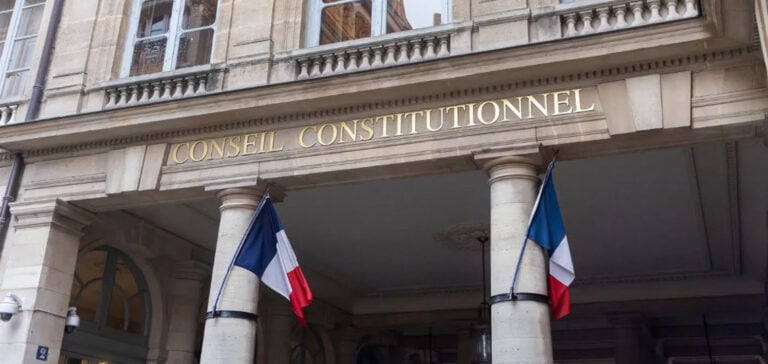A new legal principle in France has been established by the Constitutional Council. On October 27, 2023, the French Constitutional Council handed down a decision with significant implications forenvironmental protection. This decision concerns the proposed Cigéo burial center for highly radioactive waste at Bure, in the Meuse region of France. While the Constitutional Council has not blocked the project, it has established a new principle of French law that obliges us to preserve the right of future generations to live “in a balanced environment respectful of health.”
A New Environmental Protection Standard
This decision marks an important turning point in French environmental legislation. It goes beyond simple environmental protection, stating that “the legislator must ensure that choices made to meet the needs of the present do not compromise the ability of future generations and other peoples to meet their own needs”.
Reaction from the Collectif de Riverains et de Militants Anti-Nucléaire (Collective of Residents and Anti-Nuclear Activists)
The collective of local residents and anti-nuclear activists, made up of 14 local and 7 national associations, including Attac, Sortir du Nucléaire, France Nature Environnement and Greenpeace, is behind the referral to the French Constitutional Council. They hailed this part of the decision as “historic,” although it does not automatically authorize the Cigéo project as a whole. The collective remains “optimistic” and determined to challenge the declaration of public utility granted by the government in 2022 to this landfill project deemed “titanic and extremely dangerous.” The case will be decided by the Conseil d’Etat.
International influence
This new notion of the rights of future generations is not unique to France. Other foreign jurisdictions, such as Germany, Colombia and some US states, have also introduced similar principles. However, this right is limited and can be waived in the public interest. It takes effect mainly when serious and lasting damage to the environment is at stake.
The Principle of Reversibility and the Constitution
The Constitutional Council has applied in a measured way the Amerindian adage that one is “guardian of the land for one’s children.” This decision has implications for industrial projects, particularly non-nuclear ones, by forcing the State and politicians to strike a balance between industrial development and environmental preservation.
The Cigéo Project
With regard to the Cigéo project, which plans to bury the most radioactive waste in the clay subsoil at Bure by 2035-2040, the Constitutional Council has examined the process in detail. It concluded that there were sufficient guarantees to respect the principle of reversibility imposed by the Environmental Code. This means that the project’s provisions comply with the Constitution.
The next steps
However, commissioning authorization will be limited to a pilot phase designed to demonstrate the reversibility and safety of the facility. This phase will include waste retrieval tests, and waste packages must remain easily retrievable. Permanent closure of the site, which would make it impossible to go back, can only be authorized by law.
Opponents of the project believe that the waste’s shelf life, which can reach hundreds of thousands of years, seriously compromises the rights of future generations and irreparably damages the environment, particularly water resources.
Political and environmental context
The Constitutional Council’s decision comes at a crucial time, as the French government revives the atom to produce more electricity and reduce greenhouse gas emissions. Andra’s Bure site currently houses only a scientific laboratory, with no radioactive waste. Opponents are denouncing the government’s “forced passage” and remain determined to contest the project.
In short, this decision by the French Constitutional Council establishes a new legal principle in France, aimed at protecting the environment for future generations. Although the Cigéo project is not blocked, it will have to meet strict criteria to respect this principle. The question of balancing industrial development and environmental protection remains at the heart of this historic decision.






















